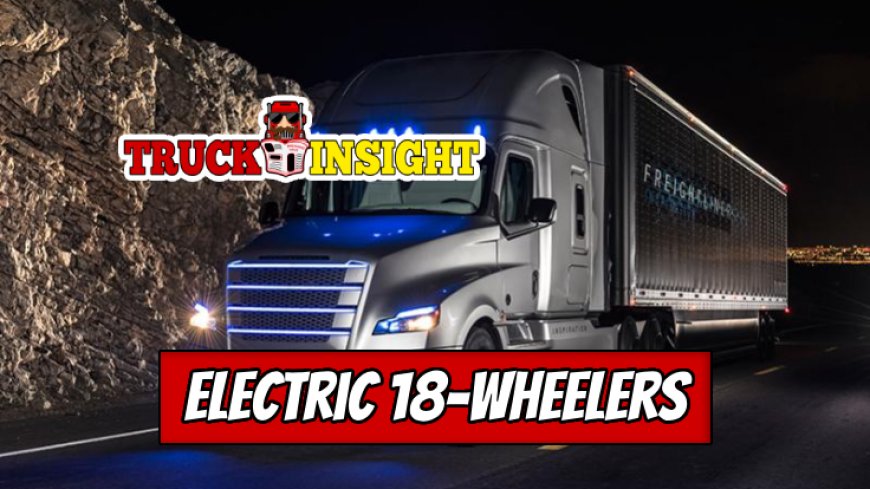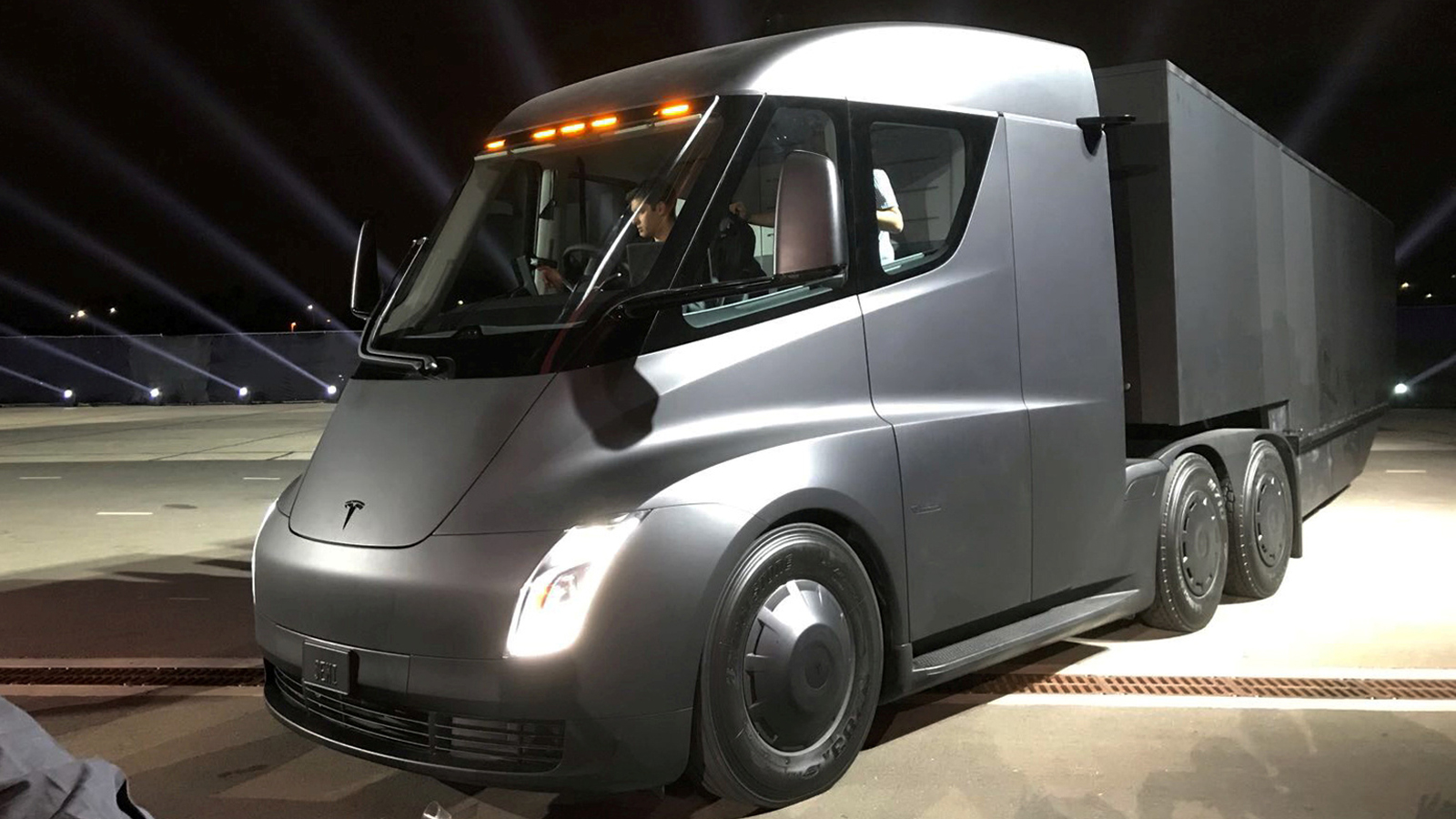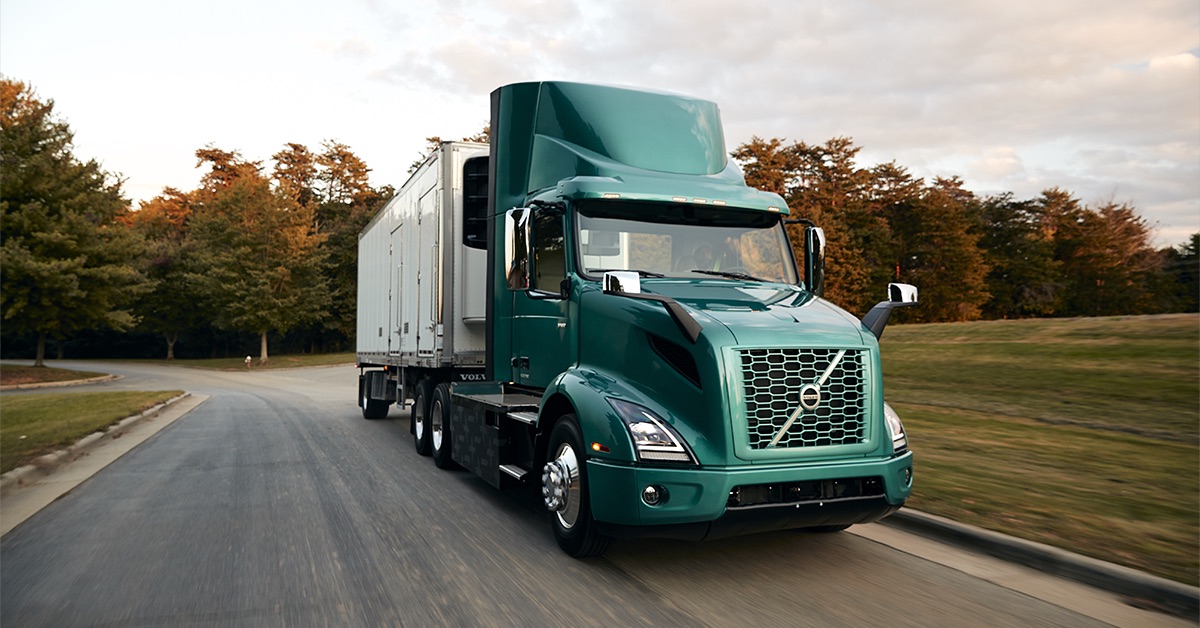Emission Reduction through Electric 18-Wheelers
Learn how electric 18-wheelers are the future of the trucking industry, promising a massive reduction in greenhouse gas emissions.

The revolution of electric 18-wheelers is setting the stage for a significant reduction in greenhouse gas emissions in the trucking industry. With traditional diesel engines contributing substantially to global warming, the industry is shifting gears towards eco-friendly alternatives. The focus is on electric 18-wheelers, which are lauded as the future of trucking.
The Future Is Electric: Bridging the Divide with Electric 18-Wheelers
With numerous technological advancements, the trucking industry is poised to witness unprecedented changes. Electric 18-wheelers, with their promise of zero-emissions, are leading the charge.
Table of Contents
- The Industry Shift Towards Electric 18-Wheelers
- Reducing Environmental Impact: Electric Trucks at the Forefront
- Challenges and Prospects for Electric 18-Wheelers
- Leading Players in Electric 18-Wheeler Manufacturing
- Future Trends in Electric 18-Wheeler Models
The Industry Shift Towards Electric 18-Wheelers

As global awareness about the impact of climate change continues to increase, industries across the board are seeking ways to reduce their carbon footprint. The transportation sector, especially the trucking industry, is witnessing a dramatic shift. Conventional diesel-burning trucks are being replaced by eco-friendly electric 18-wheelers.
Why the shift? Electric trucks prove to be an effective antidote to escalating issues such as pollution, oil dependence, and the increasing cost of fossil fuels.
- Reduced Emissions: Electric 18-wheelers produce zero tailpipe emissions, drastically reducing greenhouse gas emissions in comparison to traditional diesel counterparts.
- Energy Efficiency: Electric engines are significantly more efficient than internal combustion engines, making the most use of the energy stored in the battery.
- Lower Operating Cost: Despite a higher upfront cost, electric trucks boast lower operating and maintenance costs, making them an economical long-term investment for companies.
A New Era of Trucking
"The introduction of electric 18-wheelers signals the onset of a new era in the trucking industry," states industry expert Martin Andrews. "Going electric is not just about being eco-friendly, it's also about efficiency, cost-effectiveness and modernizing freight transport."
Reducing Environmental Impact: Electric Trucks at the Forefront
Electric trucks, particularly electric 18-wheelers, stand at the forefront of the trucking industry's journey towards sustainability. With transportation accounting for a major chunk of global greenhouse gas emissions, this shift comes at an opportune time.
But how are electric trucks reducing environmental impact?
Reducing CO2 Emissions
The National Renewable Energy Laboratory states that medium- and heavy-duty trucks, including 18-wheelers, produce almost 25% of all transportation-related greenhouse gas emissions. Electric 18-wheelers, with their zero tailpipe emission feature, can dramatically bring down this figure.
Beyond that, as the grid becomes cleaner with the rise of renewable energy, electric trucks will only get cleaner over time. This dual strategy of renewable power generation and electrified transportation, according to experts, is key to achieving a sustainable future.
Challenges and Prospects for Electric 18-Wheelers

While the benefits of electric 18-wheelers are well recognized, it's important to address the challenges accompanying this technology. Key among these challenges are battery cost, charging infrastructure, and driving range. Despite these hurdles, the potential for growth and the prospects they present are hard to ignore.
Overcoming the Barriers
Several leading firms are investing heavily to overcome these challenges. The focus is primarily on developing advanced batteries, expanding charging infrastructure, and improving driving range. Industry leaders like Tesla, Nikola, and Volvo are pushing the boundaries of innovation to usher in the next phase of trucking.
Moreover, with the influx of investments and government incentives to boost electric vehicle adoption, the trucking industry is poised for an electrification revolution. As we cross the initial adoption hurdles, electric 18-wheelers are set to become an integral part of the trucking landscape. Despite any present limitations, the future is definitely charged for electric trucks.
Leading Players in Electric 18-Wheeler Manufacturing
Considering the tremendous potential of electric 18-wheelers, several industry giants have jumped aboard the electric bandwagon. Here's a look at some companies exerting their influence in the electric trucking sphere.
Tesla

No conversation about electric vehicles is complete without a mention of Tesla. Spearheaded by visionary CEO Elon Musk, Tesla has introduced the Tesla Semi, an electric 18-wheeler with a whopping driving range of up to 500 miles. What makes Tesla stand out is its dedication towards integrating advanced autonomous features into its electric trucks, offering unparalleled driver safety and efficiency.
Nikola

Another notable player, Nikola Corporation, has also unveiled electric heavy-duty trucks, like the Nikola Two. They present a unique approach, offering both battery-electric (BEV) and hydrogen fuel cell electric (FCEV) variants. Nikola prides itself on creating trucks that are not just eco-friendly, but also boast high performance and range.
Volvo

Volvo, another industry stalwart, has stepped into the electric trucking space with the Volvo FH Electric. Emphasizing sustainable transport solutions, Volvo aims to achieve zero emissions across its truck fleet.
Future Trends in Electric 18-Wheeler Models
While the electric 18-wheelers of today are impressive, the technology is constantly evolving. Here are a few trends to watch out for:
- Improved Battery Technology: As battery technology continues to advance, we can expect trucks with better ranges and shorter charge times.
- Infrastructural Development: With the increase in electric trucks on roads, a corresponding increase in charging infrastructure will be inevitable.
- Advanced Autonomous Features: Electric trucks will likely come standard with advanced driver-assistance systems in the future, improving road safety and efficiency.
- Government Policies: As more governments incentivize the use of electric vehicles, this will also accelerate the widespread adoption of electric 18-wheelers.
Realization of these trends will not only revolutionize the trucking industry but also significantly contribute towards a greener, more sustainable future.
Final Thoughts
Undoubtedly, electric 18-wheelers hold the potential to effect a paradigm shift in the trucking industry. While they have their present set of challenges, the resounding consensus within the industry shows a strong drive towards overcoming these hurdles, ushering in a new era of efficient, clean, and sustainable trucking. Electric 18-wheelers are undoubtedly the future of the trucking industry, paving the way towards a greener planet, one mile at a time.
What's Your Reaction?





























































